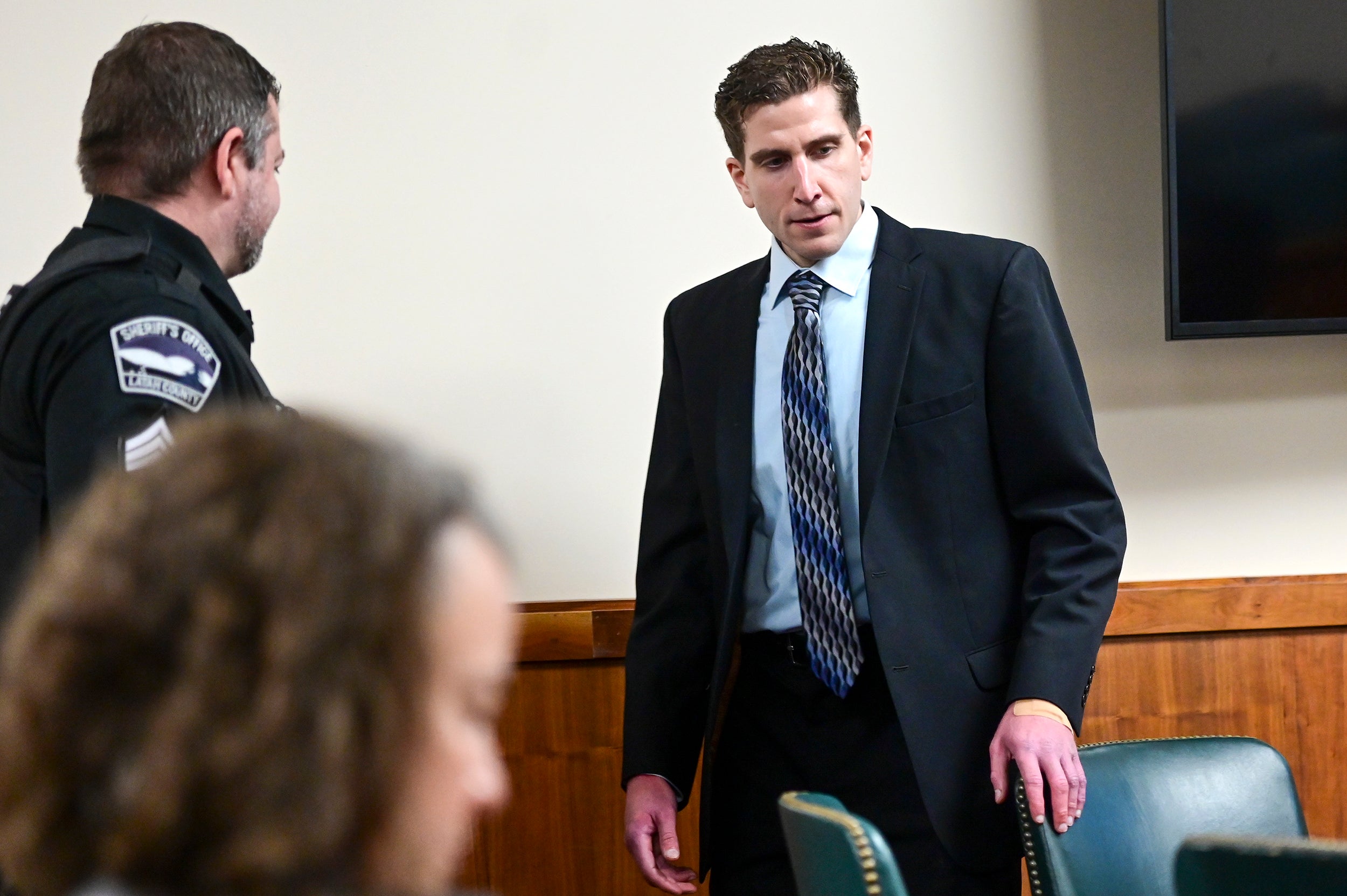Father of Idaho murder victim reacts to prosecutors seeking death penalty in Bryan Kohberger case
Kaylee Goncalves’ father Steve Goncalves said he felt ‘relief’ as his family comes one step closer to getting justice
The father of a murdered University of Idaho student has welcomed news from prosecutors that the state will be seeking the death penalty against the sole suspect in the case.
Seven months after Kaylee Goncalves, Madison Mogen, Xana Kernodle and Ethan Chapin were found stabbed to death in their off-campus residence, Latah County Prosecutor Bill Thompson filed a notice of his intent to seek the death penalty against their alleged killer, Bryan Kohberger.
Ahead of a pre-trial hearing on Tuesday, Mr Thompson cited five “aggravating circumstances” that could warrant the maximum sentence of capital punishment being sought. Reacting to the developments, Goncalves’ father Steve Goncalves said he felt “relief” as his family comes one step closer to getting justice.
“I’m glad that we’re in a situation of strength and the evidence is there and we feel that we can, they can go forward with this,” Mr Goncalves told NBC News.
The Goncalves family’s attorney, Shanon Gray, also weighed in on the filing, noting that the death penalty was reserved for especially heinous crimes, such as the quadruple stabbings of the four university students on 13 November.
“If you’re not going to pursue the guy for the death penalty on a case like this, who are you going to pursue for death penalty?” Mr Gray told the network.
In a hearing in Latah County Court on Tuesday, Judge John Judge revised a gag order to clarify that it does include members of law enforcement, investigators and expert witnesses for both sides. He also warned the media not to focus cameras solely on Mr Kohberger in the courtroom – or they run the risk of cameras being banned altogether.
The judge had been expected to hear arguments on several motions filed by the defence in recent weeks, including asking the court to order prosecutors to turn over more DNA evidence and details about the grand jury which returned an indictment against him.
Some of those issues on motion to compel and discovery had been resolved out of court while some will be argued at a later date.
The defence did ask the judge to order the prosecution to hand over some evidence in case – including police training records and Mr Kohberger’s cellphone records.
Insisting it is not a “fishing expedition”, Mr Kohberger’s attorneys said they need the evidence to be able to give him a strong defence.
In recent court filings, his attorneys have asked the court to order prosecutors to turn over more evidence about the DNA tying him to the crime scene as well as information about the grand jury which returned an indictment against him.
In one filing, submitted last week, the accused killer insisted he has “no connection” to the four slain students and claimed that DNA from three other unidentified men was also found at the grisly crime scene. He has argued that the victims’ DNA was not found in his Washington State University office, apartment, or car —but prosecutors argued that his DNA was found on a knife sheath left next to Mogen’s body.

Court documents, filed by attorneys for the 28-year-old PhD student last week, argue that DNA from two other men was also found inside the off-campus student home in Moscow, Idaho. DNA from a third unknown man was also found on a glove found outside the property on 20 November – one week on from the murders, the documents state.
The filing came in response to the state’s motion for a protective order around the methods it used to match his DNA to the crime scene.
The defence is arguing that the prosecution should hand over all this information to Mr Kohberger and that he has a right to know what led investigators to suspect him in the first place.
“Perhaps unsurprisingly, Mr. Kohberger does not accept that his defense does not need this information,” his attorneys argued.
Among the five aggravating circumstances cited by Mr Thompson is the “especially heinous, atrocious or cruel, manifesting exceptional depravity” nature of the crime and that the defendant showed “utter disregard for human life”.

“The State gives this notice based on the fact that it has not identified or been provided with any mitigating circumstances sufficient to prohibit the triers of fact from considering all penalties authorized by the Idaho legislature including the possibility of a capital sentence,” prosecutors wrote in the filing.
“Consequently, considering all evidence currently known to the State, the State is compelled to file this notice of intent to seek the death penalty.”
Mr Kohberger refused to enter a plea at his arraignment earlier this month on four charges of first-degree murder and one charge of burglary last month. His attorney said that he was “standing silent” on the charges, leaving the judge to enter not-guilty pleas on his behalf.
Mr Kohberger’s trial is scheduled for 2 October, but the date is expected to be delayed following his defence’s filings.




